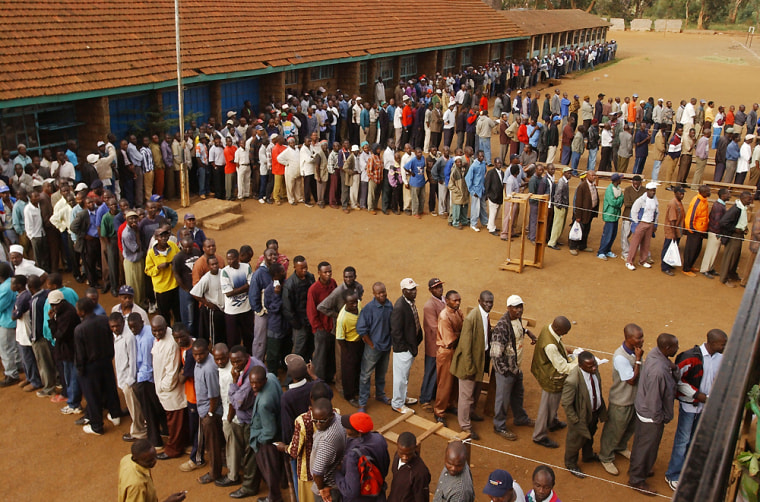
Domestic Politics
Kushinda Mgawanyiko: People's Assembly Passes Two Compromise Bills April 4916

Special Session of the People's Assembly Votes in Favor of Two Harambee-Championed Bills
Following an extended period of division and debate in the newly hung People's Assembly in which representatives from the governing National Movement and Harambee parties have clashed with members of the opposition (and often, with themselves) over a number of bills the two parties have promised while on the campaign trail, yet have failed to deliver for the past two years of governance. However, some progress has finally been made and bipartisan effort, if only temporary, has been organized. The result of this bipartisan progress are two passed bills: the Renewable Energy Infrastructure Act and Tribal Autonomy Act.
The Renewable Energy Act began as a campaigning plank of the National Movement platform, which more generally promised the expansion of Liore's electrical grid to more reliably provide electricity to already connected areas and expand coverage to rural areas not already covered. This bill garnered flak from a vast majority of the Harambee Party, and more environmentalist and conservative elements of National Movement and the opposition. However, the two factions were able to compromise on an expansion bill that would refrain from pumping funds into the development of Liore's oil, natural gas, and coal based energy infrastructure, and instead focus on the caretaking of Liore's existing renewable energy infrastructure and it's further expansion, notably in the areas of solar, hydroelectric, and geothermal energy. The bill would also see the creation of a nuclear research and development program, given the task of propelling Liore into an age of clean and renewable nuclear energy, though the fruits of this labor are estimated to be years off without the aid of nations with existing nuclear energy infrastructure. The compromised bill was passed 232-68 with no abstentions.
The Tribal Autonomy Act was one campaigned on by President Kanu Afolayan and the Harambee Party. Seeking to further encourage Kitembo traditionalism by lessening the influence of a "modernized" state from the affairs of Liori tribes, the original bill would have seen a drastic devolution of powers to Liori tribes from the National and Departmental governments, effectively making tribes autonomous states within Liore. Some members of Harambee even proposed a drastic overhaul of Liore's local government map and policy, which would have effectively turned the Socialist State into a tribal confederacy. The bill was met with fierce resistance from virtually all members of the People's Assembly outside of the Harambee and from less radical elements of Harambee, who saw it as far too radical of a change that would destroy and replace the foundation of the Socialist State. Some members, led notably by Arch Minister of Home Nya Iwu, challenged too the idea of "further traditionalizing Liore," seeing it as a threat to the cohesion and freedoms of Liore. The bill was drastically changed in order to receive bipartisan support. The scope being reduced, the passed bill would still see the concession of powers to Liori tribes, including the ability to pass binging laws in tribal lands that aren't in conflict with National and Departmental law. However, the bill also included an "Appendix of Protected Rights," which outlaws numerous rights and freedoms that would be prohibited from being infringed by tribal governments, an addition to the bill due largely to the effort of Arch Minister Iwu. The compromised bill was passed 174-119 with seven abstentions.
The passage of these two bills are thanks largely to the leadership of a few members of the government and opposition who have since gained or solidified their national fame. Chief among these was Nya Iwu, the Arch Minister of Home and popular independent Presidential candidate, who oversaw the drafting of the compromise proposals and became one of the chief proponents of the bills within the government. Along with Premier Jabali Boro, the party leader of the National Movement, Iwu was able to unite the government in favor of the compromise, with other notable figures such as Issa Okafor, a now-popular Harambee representative from Yrasema, and Zain Kalejaiye, the leader of Free Liore's Nzurchanga caucus in the People's Assembly.
Polls Indicate Great National Support for 'Umoja' September 4916
Among the Kitembo people, there is an idea of 'Umoja' that has survived the tests of times. It is the idea of a single state uniting all the Kitembo peoples of Terra under one flag, and it's one that has long been popular within Liore, though never looked upon with a large degree of seriousness until recently. Recent statements from the Kuragao President, Charlie Nibogora, (who recently met with President Kanu Afolayan during a state visit to Kuga, Kurageri) that have been reported in KBC suggest that President Nibogora has serious consideration for the prospect of a union between Liore and Kurageri, and recent polls in Kurageri indicate that a vast majority of his countrymen share that same serious consideration. With Liore and Kurageri being Terra's only two states with populations that are overwhelmingly Kitembo, most believe that it would only be natural for Umoja two be achieved through the union of the two states. To gauge the current opinion of the Liori public on unification, a nation-wide poll was administered by the Ndidi Afolayan Academy of Politics to sample groups in each Department, with the sizes of these groups being proportionate to the populations of the Departments they represent. The poll revealed overwhelming national support for Umoja, with approximately 73% expressing that they "agree" or "strongly" agree with unification. In the Departments, Yrasema saw the highest level of support, with nearly 90% of subjects expressing some level of agreement, while Afolardhi had the lowest level of support, narrowly breaking 50%. In general, Liore's more rural and tribal regions were more supportive of unification while more urban and "Liori" regions had lower rates of support (with the exception of Araresa, which broke the national average with a support rate of 82%). This is thought in part due to the desire of "Lioris" to maintain dominance in the state, and the opinion that the industrialized cities would have to pay the most for bringing the Kuragoa economy and infrastructure system up to Liori standards in hypothetical unification.
Most serving Liori politicians and officials are yet to offer comment or opinion of the idea of Umoja or the NAAP poll, most likely not wanting to rock the boat of international relations. However, several firebrand politicians have come out in vocal support for unification, these politicians coming mostly from the National Movement but all other significant parties have spawned their own Umoja-proponents.









